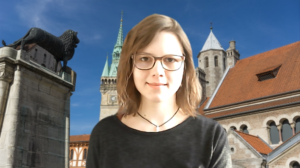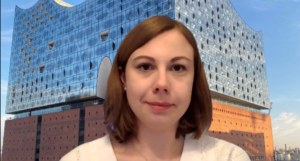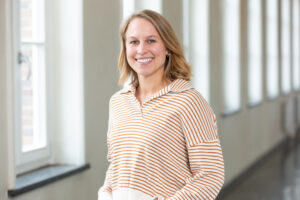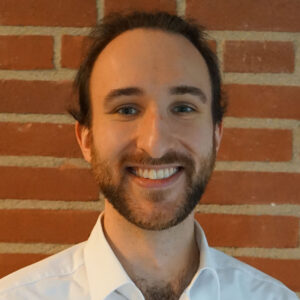Alumni - PhDs/PostDocs
Hella Schwanke hat sich im Rahmen ihrer Doktorarbeit an der TU Braunschweig mit dem molekularen Mechanismus der Immunevasion durch das M35-Protein des murinen Cytomegalovirus in der Arbeitsgruppe von Melanie Brinkmann (P01) auseinandergesetzt. Hella untersuchte die direkte Bindung von M35-Dimeren an regulatorische DNA-Elemente und den daraus resultierenden Einfluss auf die Bindung des Transkriptionsfaktors Interferon Regulatorischer Faktor 3 (IRF3) an diese Sequenzen. Mit Methoden wie RNAseq, SLAMseq und ChIPseq konnte Hella in enger Zusammenarbeit mit anderen DEEP-DV-Gruppen zeigen, dass M35 die Expression des Typ-I-Interferons Ifnb1 sowie anderer IRF3-abhängiger Gene beeinflusst. Ihre Studie wurde im Journal of Virology (PDF) und in einem Übersichtsartikel (PDF) veröffentlicht.
Hella arbeitet derzeit als Biologin in einem diagnostischen Institut für hämatologische Erkrankungen.
Denise Ohnezeit hat in der Arbeitsgruppe von Nicole Fischer 2022 promoviert. Denise hat maßgeblich das Projekt P04 vorangetrieben, insbesondere die Manipulation der Wirtsantwort durch das humane Polyomavirus Merkelzell Polyomavirus. Seit Juli 2023 ist Denise Postdoktorandin in den Arbeitsgruppen von Angus Wilson und Ian Mohr an der NYU in New York. Dort setzt Denise ihre Interessen für die genomweite Analyse der durch chronische DNA-Viren veränderten Wirtsantwort fort, wobei sie sich jetzt auf große nukleare DNA-Viren, Herpesviren, konzentriert.
Anna Katharina Kuderna hat ihre Doktorarbeit am Institut für Virologie des Universitätsklinikums Ulm (Gruppe von Thomas Stamminger) durchgeführt. Sie beschäftigte sich mit Chromatin-Remodulatoren wie PHF13, TRIM28 und dem HUSH-Komplex im Kontext der Infektion mit dem humanen Cytomegalovirus (HCMV). In ihrer Arbeit untersuchte sie deren Rolle bei der Regulation transponierbarer Elemente, der Interferon-stimulierten Genexpression und deren Einfluss auf die lytische Virusreplikation. Sie plant nun, ihre Karriere in der Biotechnologie fortzusetzen.
Alessandro war Postdoktorand im Schreiner-Labor an der Medizinischen Hochschule Hannover. Da seine Doktorandenausbildung bereits auf dem Gebiet der Organoide stattfand, arbeitete er an humanen organoiden Modellen als Infektionsmodelle für Adenovirusinfektionen und Immunantworten.
Aufgrund dieses sehr angewandten und innovativen Forschungsgebietes ist Alessandro bei Partex Projekt Manager.
.




